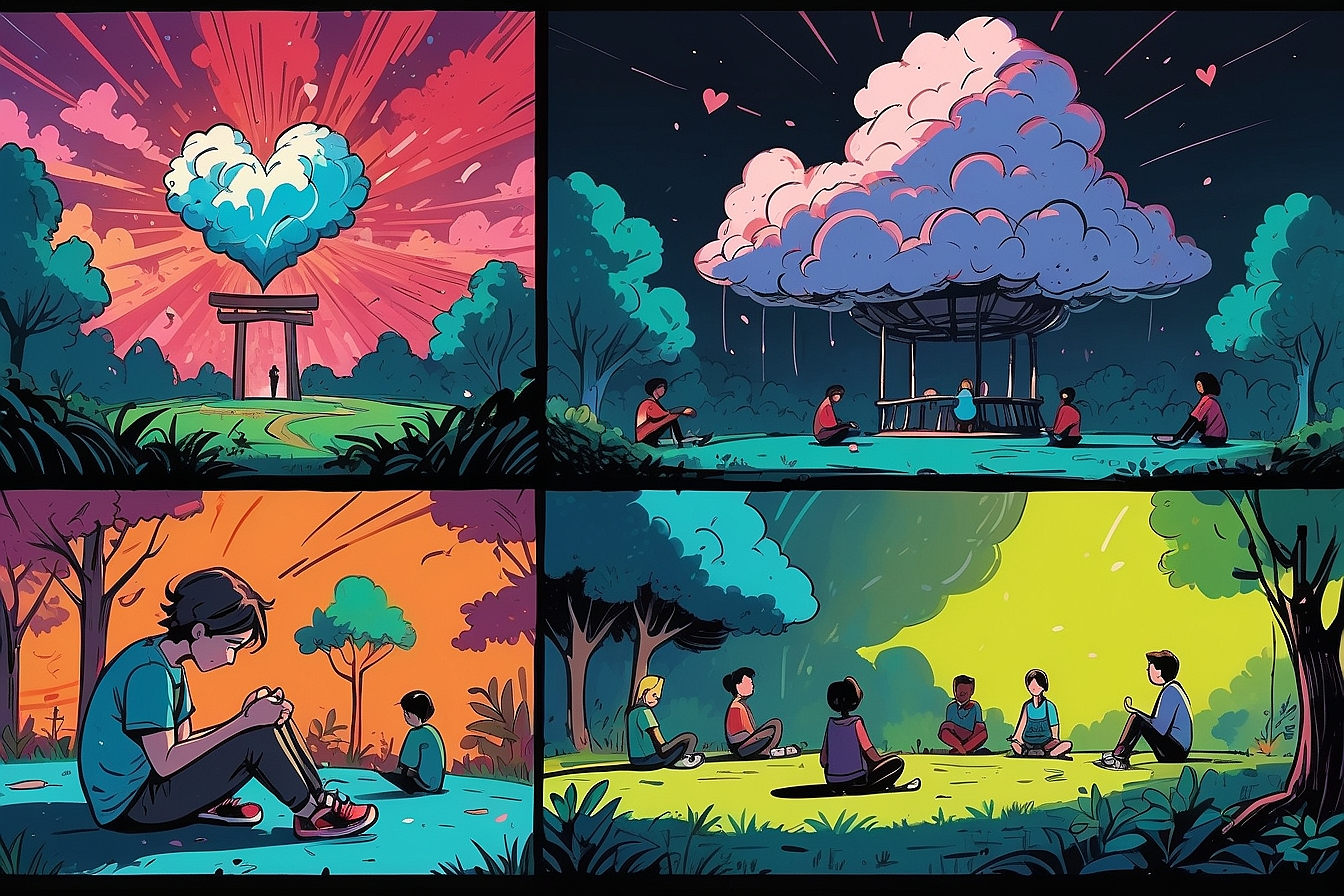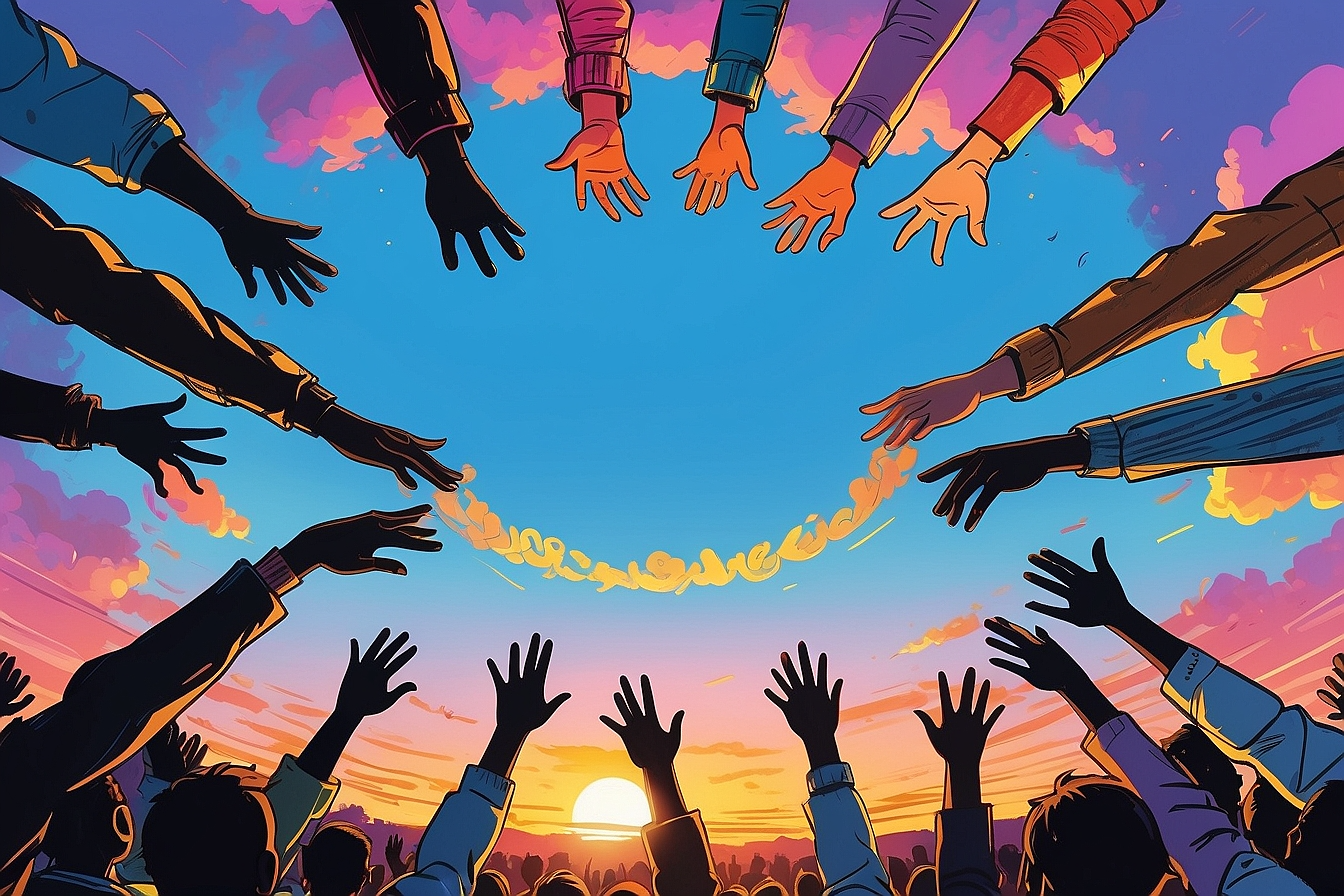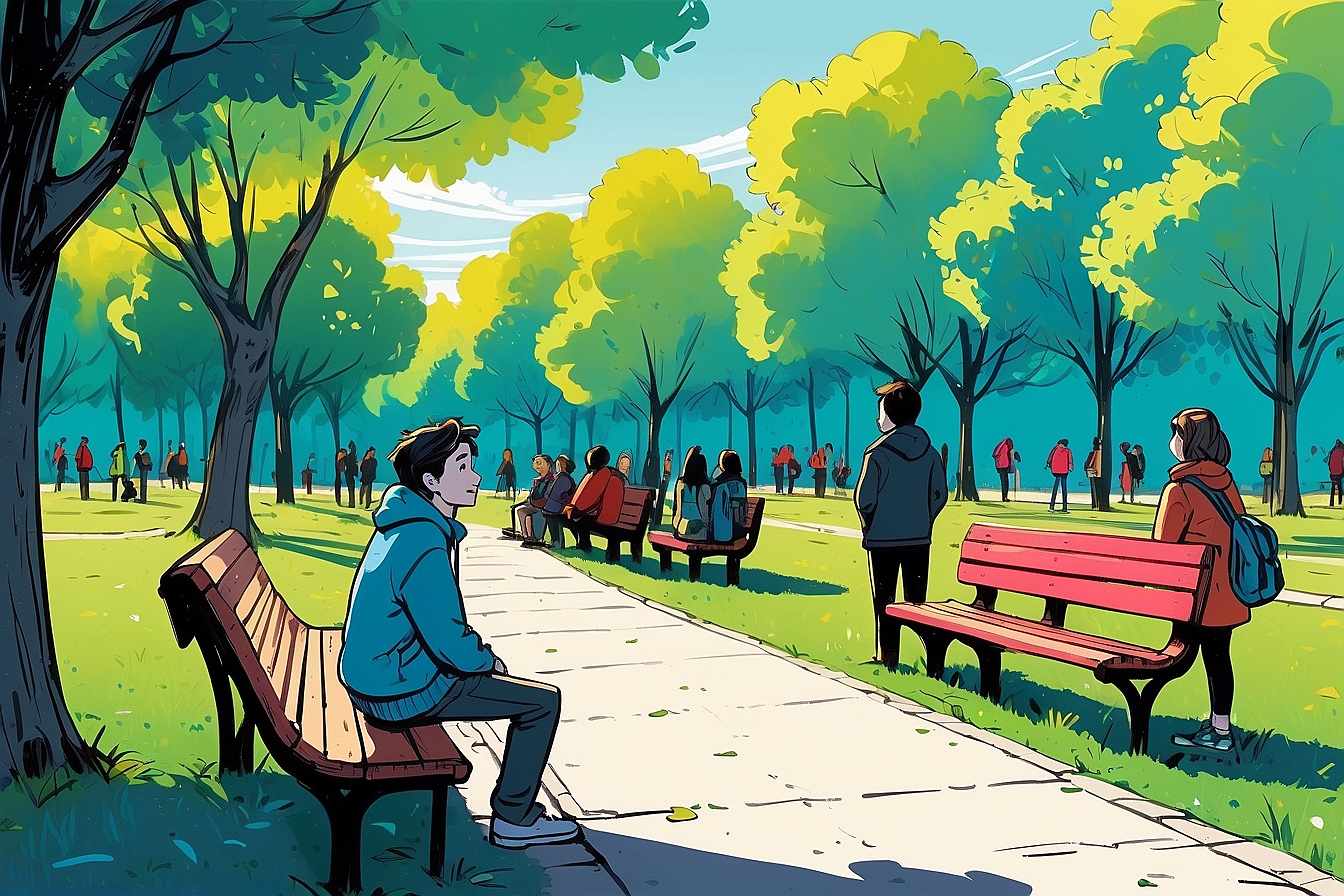Introduction
Have you ever felt like you’re on the outside, looking in? Maybe you see groups of friends laughing together and wish you could be part of that warmth. Feeling lonely isn’t just about being alone; it’s about feeling disconnected, even in a crowd. We all need emotional support and social connections—they’re as essential to our well-being as air and water.
Remember the last time you made a new friend? That spark of connection over a shared interest, the relief of being understood—it’s a fundamental human joy. But what happens when those connections fade or don’t form at all? Whether moving to a new city, growing apart from old friends, or struggling with social anxiety, finding ourselves without friends can make the world feel colder and less welcoming. For those with few friends, the challenges of forming relationships can be even more daunting, leading to feelings of isolation and loneliness.
This guide will explore why some of us have fewer friends or cannot make them. We’ll also discuss how this loneliness affects our mental health and what steps we can take to weave new threads of friendship into the fabric of our lives. It’s not just about adding names to a contact list—it’s about enriching our lives with meaningful relationships that offer support during tough times and joy during the good ones.
Friend making skills: Lacking friend-making skills can significantly contribute to loneliness. Struggles with social confidence, initiating conversations, and meeting new people can make it difficult to establish meaningful friendships. Improving these skills can help build confidence and foster new connections.
Reasons Why You Might Feel Lonely and Have No Friends: Social Anxiety

Feeling lonely and finding it hard to make friends is a common experience for many people. Here are some reasons why this might happen:
Difficulty forming relationships: Some people find it challenging to connect with others. This might be due to past experiences, personal insecurities, or simply not knowing how to start or maintain a conversation.
Fear of rejection: The worry that others won’t accept or like you can be a big barrier. This fear might stop you from reaching out and can lead to missed opportunities for friendship.
Lack of social skills: Not everyone is born knowing how to interact effectively. Some social cues are hard to read, making social interactions awkward or stressful.
Isolation or social anxiety: If you feel anxious in social situations, you might avoid them altogether. This can lead to a cycle of isolation and increased anxiety, making it even harder to make friends. Additionally, not having close friends can contribute to these mental health issues, increasing the risk of depression and anxiety.
Understanding these factors can be the first step toward overcoming them and finding meaningful connections.
The Impact of Loneliness on Mental and Physical Health: Emotional Support

Loneliness doesn’t just affect how we feel; it also has significant impacts on our health. Here are some ways that feeling lonely can affect both our minds and our bodies:
Increased risk of depression and anxiety: When we feel lonely, we’re more likely to experience symptoms of depression and anxiety. Being disconnected from others can lead to sadness and worries that are hard to shake off.
Negative effects on physical health: Loneliness can also harm physical health. Studies show that it can increase our risk of heart disease, high blood pressure, and a weakened immune system.
Importance of social connections: Friends and strong social connections are vital for our well-being. They provide emotional support, help us cope with stress, and can even improve our lifespan.
Here are some practical steps to take if you find yourself without friends:
Reach out to others: Don’t be afraid to initiate conversations and make new friends. Building connections often starts with a simple hello.
Join clubs or groups: Engaging in activities and joining a club can help you meet people with the same interests. You can also make online friends through social media and online platforms.
Volunteer: Volunteering is a great way to meet new people and give back to the community.
Seek therapy: A therapist can help you work through feelings of loneliness and develop strategies to build connections. It’s also important to learn to spend time with oneself and find joy in personal activities.
Join Facebook groups: These groups are an excellent way to meet people online with similar interests.
Be your own best friend: Engage in self-care activities, spend time alone, and find hobbies that bring you joy.
Building and maintaining friendships are not just good for our social life; they are crucial for our overall health and happiness.
What to Do If You Have No Friends: Making Friends

Feeling like you have no friends can be tough, but there are steps you can take to build connections and start feeling better. Here are some practical suggestions:
Reach out to others: Sometimes, making the first move can be the hardest. Try reaching out to acquaintances or colleagues. A simple conversation can sometimes lead to a lasting friendship.
Volunteer: Volunteering is a great way to meet people while positively impacting your community. It naturally brings together people with similar interests, which can be the basis for new friendships.
Join clubs or groups: Whether it’s a book club, a gardening group, or a sports team, joining a club can connect you with people who share your interests. This can make starting conversations and forming friendships much easier.
Seek therapy: If your feelings of loneliness are overwhelming, talking to a therapist can help. Therapy can provide strategies to cope with loneliness and improve your social skills.
These actions can help create new social circles and enhance your sense of belonging. Making friends takes effort, but the rewards of having supportive and caring relationships are well worth it.
Conclusion

Feeling lonely and struggling to make friends can be challenging, but it’s important to remember that you’re not alone in these feelings. Many people face similar struggles, and there are steps you can take to overcome them. You can build a fulfilling social life by understanding the reasons behind your loneliness, recognizing its impact on your health, and actively seeking out connections.
Remember, making friends is a process that involves reaching out, sharing experiences, and sometimes stepping out of your comfort zone. Whether it’s through volunteering, joining groups, or seeking professional help, each step you take is a move towards a richer, more connected life. Friends are out there and might just be looking for someone like you. Keep an open heart and mind, and the connections will follow.







Find Us on Socials